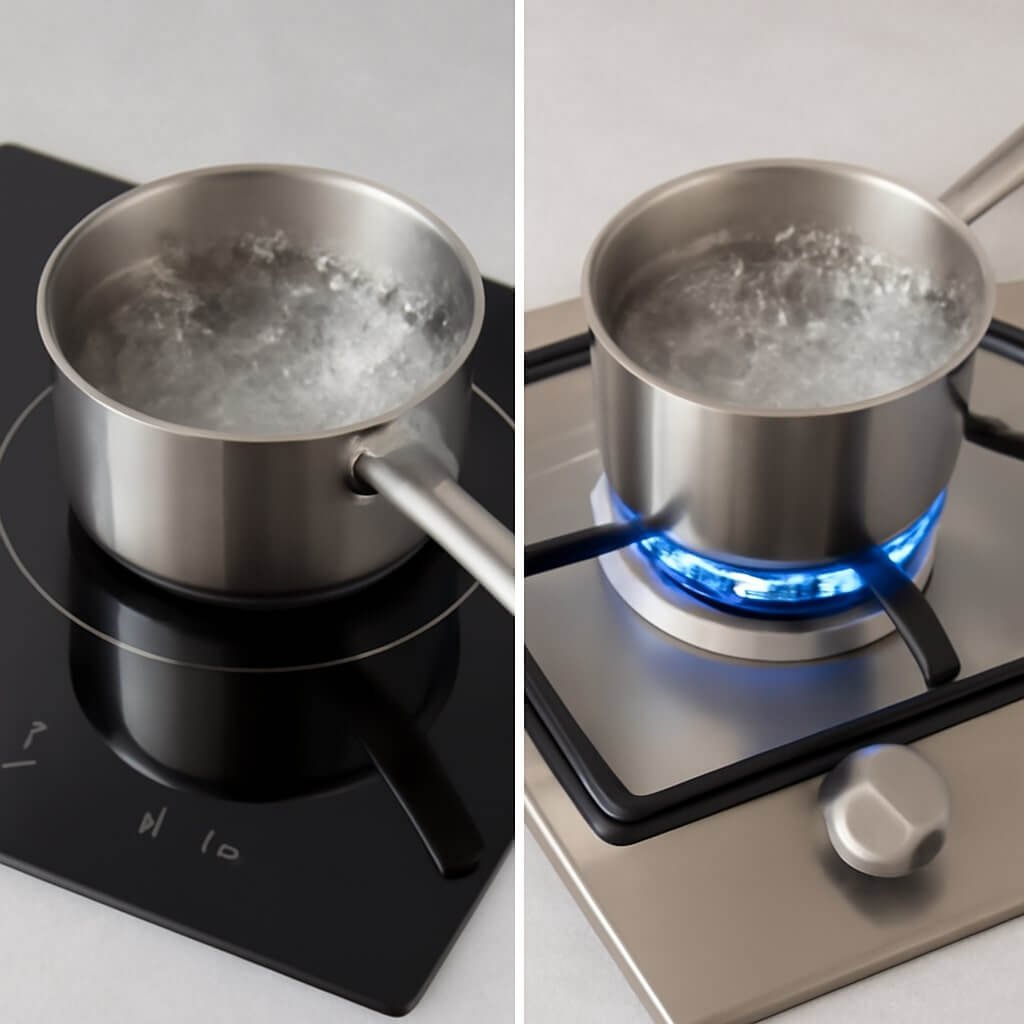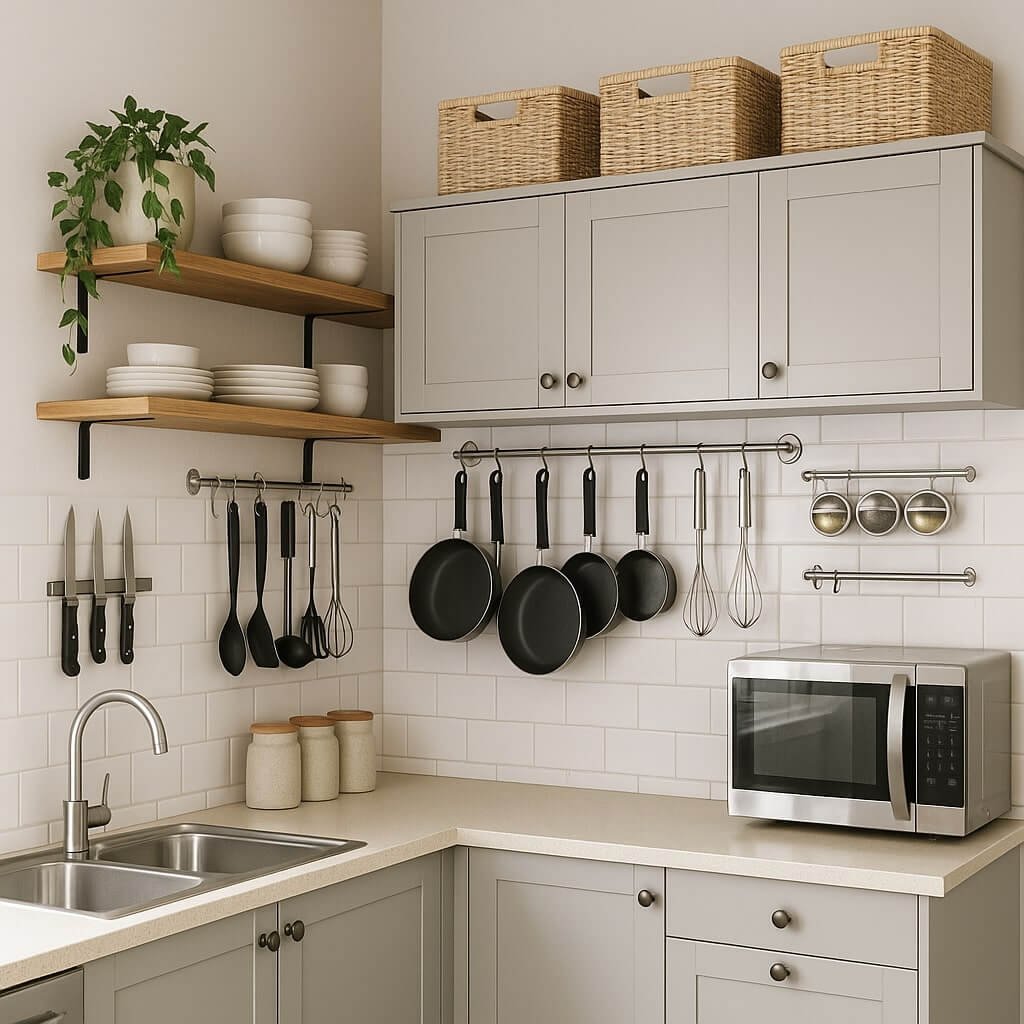When it comes to cooking efficiently and saving energy, the type of cooktop you choose can make a significant difference in both your energy bills and your cooking experience. Induction and gas cooktops are two popular choices, but which one truly saves more energy? In this article, we’ll explore the energy efficiency of both cooktops, highlighting the pros and cons of each to help you make an informed decision.
Understanding Induction Cooktops
Induction cooktops have gained popularity due to their energy efficiency. Unlike traditional electric or gas cooktops, induction cooktops use electromagnetic fields to heat cookware directly. This direct transfer of heat reduces wasted energy, making induction cooking more efficient.
Energy Efficiency of Induction Cooktops:
Induction cooktops are typically 90% efficient, meaning that 90% of the energy used goes into heating your food. This is because the heat is generated directly in the cookware, rather than being transferred from a burner to the pot. The rapid heating also ensures that less energy is wasted, leading to faster cooking times and lower energy consumption.
Understanding Gas Cooktops
Gas cooktops, on the other hand, use an open flame to heat the cookware. While many people love the control and responsiveness gas cooking offers, it tends to be less energy-efficient compared to induction cooking.
Energy Efficiency of Gas Cooktops:
Gas cooktops are typically around 40-60% efficient. This means that a significant amount of energy is lost in the form of heat that radiates around the cookware, rather than being used to cook the food directly. In addition, gas cooktops take longer to heat up compared to induction, further increasing energy consumption.
Key Factors Affecting Energy Efficiency
- Heat Transfer:
- Induction cooktops have more direct heat transfer, which means less heat loss. Gas cooktops, on the other hand, heat the surrounding air and often require more energy to maintain temperature.
- Cooking Time:
- Induction cooktops cook faster, reducing overall energy use. Gas cooktops, while quick to adjust temperatures, tend to take longer to heat food compared to induction.
- Control and Precision:
- Induction cooktops offer precise temperature control, which can lead to less energy waste as you won’t need to adjust heat levels constantly. Gas cooktops offer good control but still lose heat to the air, making them less efficient in comparison.
Pros and Cons of Induction Cooktops
Pros:
- Energy Efficient: Direct heating ensures minimal heat loss.
- Faster Cooking: Cooks food quickly, saving energy.
- Precise Control: Allows for precise heat adjustment, reducing waste.
- Safe: The cooktop remains cool to the touch, reducing the risk of burns.
Cons:
- Cost: Induction cooktops tend to be more expensive than gas cooktops.
- Compatibility: Requires ferrous cookware (magnetic-based), which may require an investment in new pots and pans.
Pros and Cons of Gas Cooktops
Pros:
- Immediate Heat: Gas cooktops provide instant heat, ideal for quick adjustments.
- More Affordable: Generally, gas cooktops are less expensive upfront than induction cooktops.
- Better for Some Recipes: Certain cooking methods, such as charring or flame-cooking, are easier with gas.
Cons:
- Energy Waste: Gas cooktops are less energy-efficient and can result in higher utility bills.
- Longer Cooking Times: Takes longer to cook food, leading to more energy consumption.
- Heat Loss: Gas burners lose heat to the air around them, making them less efficient.
Which Cooktop Saves More Energy?
In terms of energy savings, induction cooktops win hands down. The direct transfer of heat and faster cooking times make induction the more energy-efficient choice. If you’re looking to save on energy bills in the long run, an induction cooktop is the best option.
However, if you’re on a budget or prefer the familiarity of gas cooking, a gas cooktop may still be a good choice for you. Just keep in mind that while gas cooktops may be less efficient, they still offer other benefits, like precise flame control and a lower initial cost.
Frequently Asked Questions (FAQs)
1. Are induction cooktops really more energy-efficient than gas?
Yes, induction cooktops are significantly more energy-efficient than gas cooktops. They use up to 90% of energy for cooking, compared to just 40-60% in gas cooktops.
2. Can I use any cookware with an induction cooktop?
No, induction cooktops require cookware that is magnetic-based. This includes cast iron, enameled iron, and some stainless-steel pots and pans.
3. Are induction cooktops more expensive than gas cooktops?
Yes, induction cooktops are generally more expensive upfront than gas cooktops, but they offer long-term savings due to their energy efficiency.
4. Does induction cooking heat food faster than gas?
Yes, induction cooktops heat food much faster than gas cooktops, further enhancing energy savings.
5. Is it safe to use induction cooktops?
Yes, induction cooktops are very safe. They only heat the cookware, and the cooktop itself remains cool, reducing the risk of burns.
Conclusion
Choosing between induction and gas cooktops depends on your cooking needs, budget, and energy efficiency priorities. If you’re focused on saving energy and lowering your electricity bill, an induction cooktop is the clear winner. However, gas cooktops still offer excellent performance and a lower initial cost for those who prioritize versatility and ease of use.




